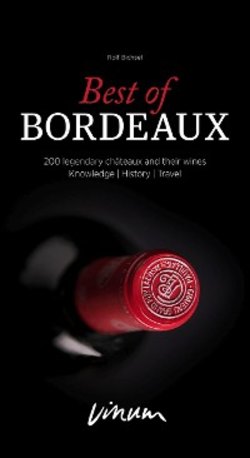Читать книгу Best of Bordeaux - Rolf Bichsel - Страница 48
Оглавление48
History Division of labour
owner lets them follow their instincts. What would Lafite be without its director
Charles Chevallier, Yquem without Pierre Lurton or winemaker Sandrine Gar-
baye, Pichon Baron without Jean-René Matignon, Cantenac Brown without José
Sansfin to name but a few, and what would all of these figures be without the
hardworking bees and drones buzzing away behind them? The owners who can
be found in the cellar of their Grand Cru even when the press is no longer there
(I am thinking in particular of Lucien Guillemet at Boyd Cantenac) are excep-
tions to the rule and of no detriment to quality – in fact, quite the opposite. In
the best cases, the owner and director develop a form of symbiosis as at Pontet
Canet for example, where the dynamic and enterprising Alfred Tesseron and
the dour tinkerer Jean Michel Comme have formed an almost ideal business
marriage which has now inspired a wine whose like the estate (and the world)
has never before seen.
And consultant oenologists? Without them nothing would happen, and the
most important are not always the most famous. It is impossible to avoid the Pe-
ynaud legend, not so much because of his research work as because of his ability
to describe wine in words used by no one before him. The greatest, most price-
less merit of a Michel Rolland is the fact that he has enticed and encouraged
winemakers to head into their vineyards and really taste their grapes in order
to better understand their substance and potential. Although tales of Stéphane
Derenoncourt may have been exaggerated and occasionally become the stuff
of legends, it is thanks to him (among others) that Saint-Emilion now has 200
good wines rather than just 20. However, the nuts and bolts of winemaking is
also carried out by many others, the Dubourdieus, Boissenots, Pasquets, Nav-
arres, Olliviers and the rest, men and women who want nothing more than to
do good work in the background, whether as researchers, analysts, laboratory
technicians or consultants striving to create the perfect blend.
There can be no theatrical success without critics or an audience. What is
the value of critics? Without them there would be absolutely no activity in the
English-speaking world. Parker and co. remain the weather gods of Bordeaux. In
Europe their importance and in
fl
uence (positive and negative!) is rather mod-
est, although some dream of following in Parker's footsteps. This is as it should
be – good critics should have an opinion, which you may or may not share. The
important members of a theatre-going audience are not those who go to a per-
formance because they want to be seen, but rather those who go because they
are interested in the play and form an opinion with the help of critics (rather
than one single critic). Anyone who reads between the lines and deduces that
you can only be a Bordeaux connoisseur by being whizzed seven times around
oenological university in a chauffeur-driven limousine with a minibar has to-
tally missed the point. Let's not leave Bordeaux to the speculators and captains
of industry. Anyone who would have us believe that Bordeaux belongs in a
